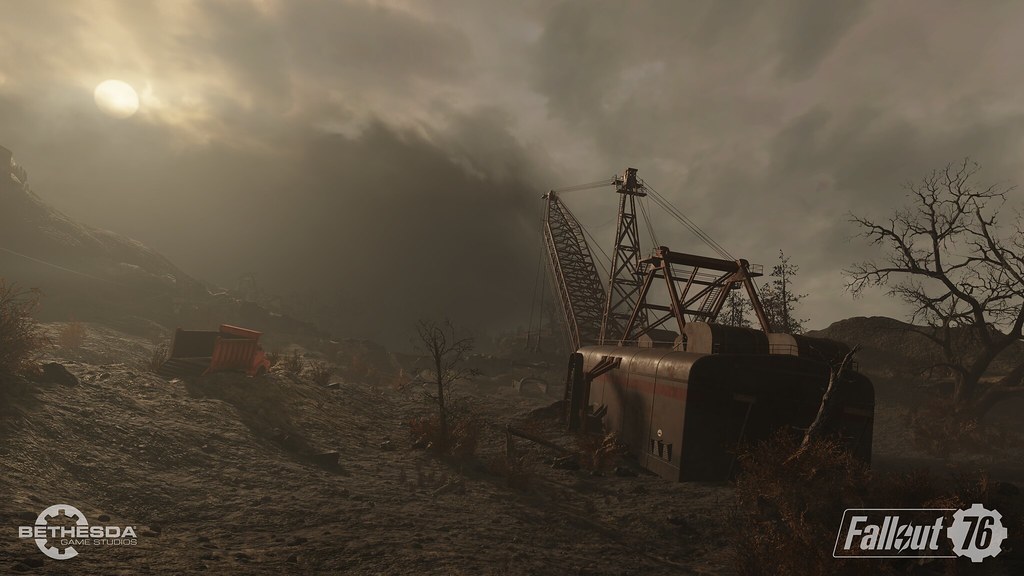In the ever-evolving landscape of video game development, few studios carry the weight and anticipation with each announcement as Bethesda Game Studios. Known for their expansive and immersive role-playing games, Bethesda has set a high bar for the industry. However, with high expectations comes the pressure of delivering quality content within a reasonable timeframe. Todd Howard, the face of Bethesda, recently shed light on the studio’s current focus: increasing its output without compromising the quality that fans have come to expect.

After the release of Starfield in September, the studio has pivoted to the development of The Elder Scrolls 6. Announced in 2018, the game is still without a release date, suggesting that it may be years before fans can explore the next chapter in the Elder Scrolls saga. This has led to a broader conversation about the production timelines at Bethesda and how they might be improved. In a candid interview with Kinda Funny Games, Howard expressed his passion for game development, stating, “I love making games and if I wasn’t creating them, I’d be playing them.” This passion is a driving force behind the studio’s desire to find ways to shorten the long wait times between game releases.

Howard acknowledged the lengthy development cycles, emphasizing the studio’s commitment to quality: “You know, they do take a long time, and so I think one of the things we’re focused on here is obviously making sure they’re of the highest quality, but also finding ways to increase our output, because we don’t want to wait that long either, right. It’s never our plan, but we want to make sure we get it right.” His words reflect a balancing act between the desire to deliver games more frequently and the necessity of maintaining the high standards that Bethesda is known for.

The conversation around Bethesda’s output is not just about the big titles.
The studio has also been exploring other avenues to keep fans engaged. The success of the Amazon Fallout TV series has brought the franchise to new heights of popularity, and Bethesda has responded by integrating new content into Fallout 76, including the upcoming Skyline Valley map expansion. This suggests a multi-faceted approach to the franchise, considering various platforms and formats to keep the universe alive and thriving.
Despite the excitement around new content, the community has voiced concerns about the potential for a decline in quality with increased output. Comments from fans on forums reflect a mix of anticipation and skepticism. Some express eagerness for new collaborations, such as the possibility of Obsidian Entertainment taking on another Fallout game, while others worry about the studio’s current trajectory and management. The sentiment is captured by a user who stated, “Shouldn’t say no when Obsidian offered to do a new Fallout and TES singleplayer game then, they care more about their online MMO money makers now than SP, and who listens to Todd anymore lol.”
The discussion of external partnerships is not new to Bethesda.
Howard mentioned that the studio has always entertained such conversations, and the relationship with Obsidian remains a topic of interest, especially now that both studios fall under the Microsoft umbrella. The potential for collaboration could open doors to new creative directions and faster production times. Howard praised Obsidian’s work on Fallout: New Vegas, acknowledging its importance to both Bethesda and its fans.
Bethesda’s commitment to quality was further demonstrated with the recent next-gen update for Fallout 4, which was released for Xbox Series X/S and PS5. This update, along with the planned content for Fallout 76, indicates that Bethesda is not solely focused on new titles but also on maintaining and enhancing the experiences of existing games.
As Bethesda navigates the challenges of meeting fan expectations while trying to increase its output, the studio’s strategies and decisions will be closely watched by the gaming community. With Todd Howard at the helm, expressing no plans to retire, the journey ahead for Bethesda is one of balancing the art of game development with the science of production efficiency. The studio’s success in this endeavor will not only shape its own future but also set a precedent for the industry at large.
Exploring impact of collaboration on Bethesda’s future.
The gaming landscape is one that thrives on the symbiotic relationship between developers and their audience. It’s a dance of give and take, where feedback loops can significantly influence the trajectory of a game’s development and, ultimately, its success.
The notion of collaboration, especially with external studios like Obsidian Entertainment, is a tantalizing prospect for fans. The success of Fallout: New Vegas has left many yearning for a sequel or a similar partnership that could bring fresh perspectives to beloved franchises. Todd Howard’s acknowledgment of Obsidian’s ‘incredible job’ on New Vegas is a beacon of hope for those dreaming of a New Vegas 2 or another spin-off that could satiate their appetite while waiting for the next big titles.
Community feedback has always been a cornerstone of Bethesda’s development process. The studio has shown a willingness to adapt and evolve based on the reactions and suggestions of its player base. This is evident in the continuous updates and expansions for Fallout 76, such as the Skyline Valley map expansion. Such initiatives demonstrate Bethesda’s commitment to not only maintaining but enriching their existing games.
The community’s voice is not without its criticisms.
The concerns about a potential decline in quality with increased output are valid, considering the studio’s history with bugs and technical issues. The sentiment within the forums and comments from fans reflects a mix of anticipation and skepticism. There’s a clear desire for Bethesda to focus on the ‘highest quality’ as Todd Howard puts it, but also a fear that this could be compromised in the pursuit of increased output.
The integration of community feedback into the development process could be a key strategy in mitigating these concerns. By actively engaging with the player base and incorporating their input, Bethesda can ensure that their games resonate with their audience and maintain the high standards expected of them. This approach could also help in identifying and addressing potential issues early in the development cycle, leading to smoother releases.
The potential for collaboration with other studios under the Microsoft umbrella opens up exciting possibilities. With both Bethesda and Obsidian now part of the same family, the door is ajar for future partnerships that could lead to faster production times and new creative directions. Such collaborations could also alleviate some of the pressures on Bethesda to increase output, allowing them to focus on quality while still satisfying the demand for new content.
The recent next-gen update for Fallout 4 is a testament to Bethesda’s dedication to their games post-release. It’s a move that not only breathes new life into an older title but also reassures fans that the studio values the longevity and playability of its games. This philosophy could be a guiding principle as Bethesda looks to expand its output. By ensuring that each game has a robust post-launch support plan, the studio can maintain engagement with their community and provide a steady stream of content.
As Bethesda continues to navigate the challenges of meeting fan expectations, the role of community feedback and collaboration will become increasingly important. The studio’s ability to listen, adapt, and innovate will be critical in shaping its future and maintaining its reputation within the industry. With Todd Howard at the helm, expressing no plans to retire, the journey ahead for Bethesda is one of balancing the art of game development with the science of production efficiency.
Collaboration and feedback are crucial for Bethesda’s future success. It’s an exciting time for the studio and its fans, with endless possibilities ahead. Cheers to Bethesda’s next chapter!
Related posts:
Todd Howard says Bethesda is now focused on “finding ways to increase our output”
Todd Howard says Bethesda is focused on finding ways to increase its output
Todd Howard says Bethesda is focused on finding ways to increase its output




